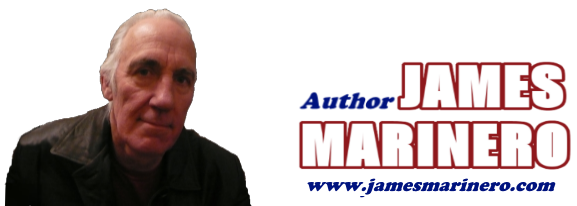This is a collection of the articles I have written ‘on writing’ as I have worked to develop my skill and hopefully an ability to entertain:
- Suspending Disbelief in Thriller Novels
Can your readers suspend disbelief? The techno thriller novel genre – is it science fiction or science faction? Here I’m not going to discuss literary fiction – such as written by Ian McKeown or V S Naipaul; I’m discussing thrillers, specifically techno-thriller novels. Now, you might think immediately of Tom Clancy, or maybe Craig Thomas, but Patricia Cornwell is also, to me, a techno-thriller author. When I read Cornwell, I believe pretty much everything – she was a medical examiner and knows bodies inside out. Clancy or Thomas though? Certainly their work is plausible, even when Thomas invented a new Russian plane, in Firefox, it was fairly credible to me. - Fact Checking: How To Write Novels
If you are learning how to write novels, find out why fact checking matters. James Marinero explains why an author can lose readers if facts are not checked. - How To Write Novels: Basics
Tips for those who are learning how to write novels – a view from someone who learned the hard way (and still learning), or, ‘what they don’t teach you in writing school’. - Thriller Novels – What Will Be The Next Big Theme?
Al Quaeda has been a gift to novelists, with countless thriller novels being written on the topic since 2001. Before that it was the Cold War. What will the next ‘big theme’ be? China – the Chinese navy, China’s financial tentacles and industrial might – the author argues persuasively that this will be the next big theme for thriller writers. So, where will the next rich seam come from for techno thriller and regular thriller writers? Well, I’m convinced that it is the rapid emergence of China as a financial, industrial and outward facing military power. Chinese emergence is being driven from the bottom up by a vast population with rapidly rising expectations, ingenuity and a hunger – both literal and metaphorical. The only way that this internal pressure can be contained is to let it out, gradually. The lid of the kettle that is the Chinese Communist Party wants to stay firmly on top, so other ways have to be found to relieve that internal pressure. - Location Research For Spy Novels
Good location research, preferably on-the-spot, is essential if an author of spy novels is to capture the feel of a location and convey a sense of place. This is about my research in North Africa. I have written elsewhere about the importance of fact checking. It tends to be undertaken mainly at the editing stage. Of course, if a book’s plot relies heavily on the accuracy of a particular fact, then the checking needs to be done very early on in the writing process. Good location research, preferably on-the-spot, is essential too, if an author of spy novels (or other thrillers for that matter) is to capture the feel of a location and write with authority about that place. - Techno Thriller Novels – Developing the Plot
Techno thriller novels and thriller novels – how to develop the plot, or more specifically, how I do it. Do you start out with a central idea, and then map it and develop it from there, with the structure clear in your mind, or on paper, before you start writing? Or, do you have another approach? Many writers let the story flow, and that’s what I’ve learned to do, starting from one central idea (the feasible extraction of gold from seawater). Of course, that way, you don’t know how it will end up, other than the fact that you have to keep alive the main character (or not)! - Pulp Fiction Thriller Novels What Can They Teach Us?
Can writers of thriller novels learn from film directors? Pulp Fiction (Quentin Tarantino) has an unusual way of dealing with timelines (and it’s not time travel). Does the serial disconnect of the plot scenes (apart from the typical title scene peek) affect the viewer’s enjoyment, and would it work in print? Although the structure has surely been tried already, this article considers the possibilities and the likely impact for e-readers. So, what can thriller authors learn? Would the patchwork quilt approach work? Obviously, killing off a main character in the middle might remove some of the interest, but then a reader will know that there’s a reason the author has structured it in that way. I’m sure that the quilt approach (with temporal disconnects) has been tried, though I don’t recall reading a book structured in that way. - Short Stories Compendium
The story of a book of short stories, and what the best collections deliver. What’s the history of a book, can an e-reader ever capture that mystery of history? I doubt it. Here’s what’s special about mine. - Discovering Words
How do you extend your vocabulary? How can you exercise your brain whilst doing so, and does it work? Find out how puzzles can help.



